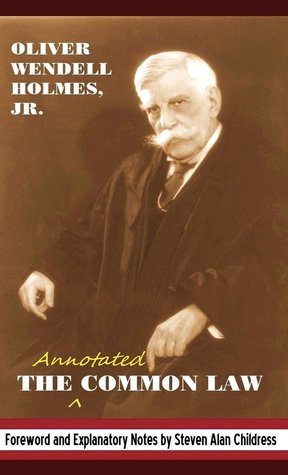What do you think?
Rate this book


448 pages, Hardcover
First published January 1, 1911
March 5, 1881
I have failed in all correspondence and have abandoned pleasure as well as a good deal of sleep for a year to accomplish a result which I now send you by mail in the form of a little book The Common Law. When a man is engaged all day at his office in practice it is a slow business to do work of this sort by night, but my heart has been deeply in it, and I am encouraged to hope by the way in which you have received articles which were precursors of parts of the volume that you will not think my time has been wasted. At any rate I have worked hard for results that seemed to me important. You are happy in being able to afford time to philosophy. I have to make my living by my profession and therefore have been compelled to approach philosophy indirectly through the door of a specialty, but all roads lead to Rome and I don't doubt that a man with the philosophic craving would find stuff to work upon if he was a hatter. I sometimes even think that there is a certain advantage in difficulties, and that one sails better with the wind on the quarter than when it is directly astern.